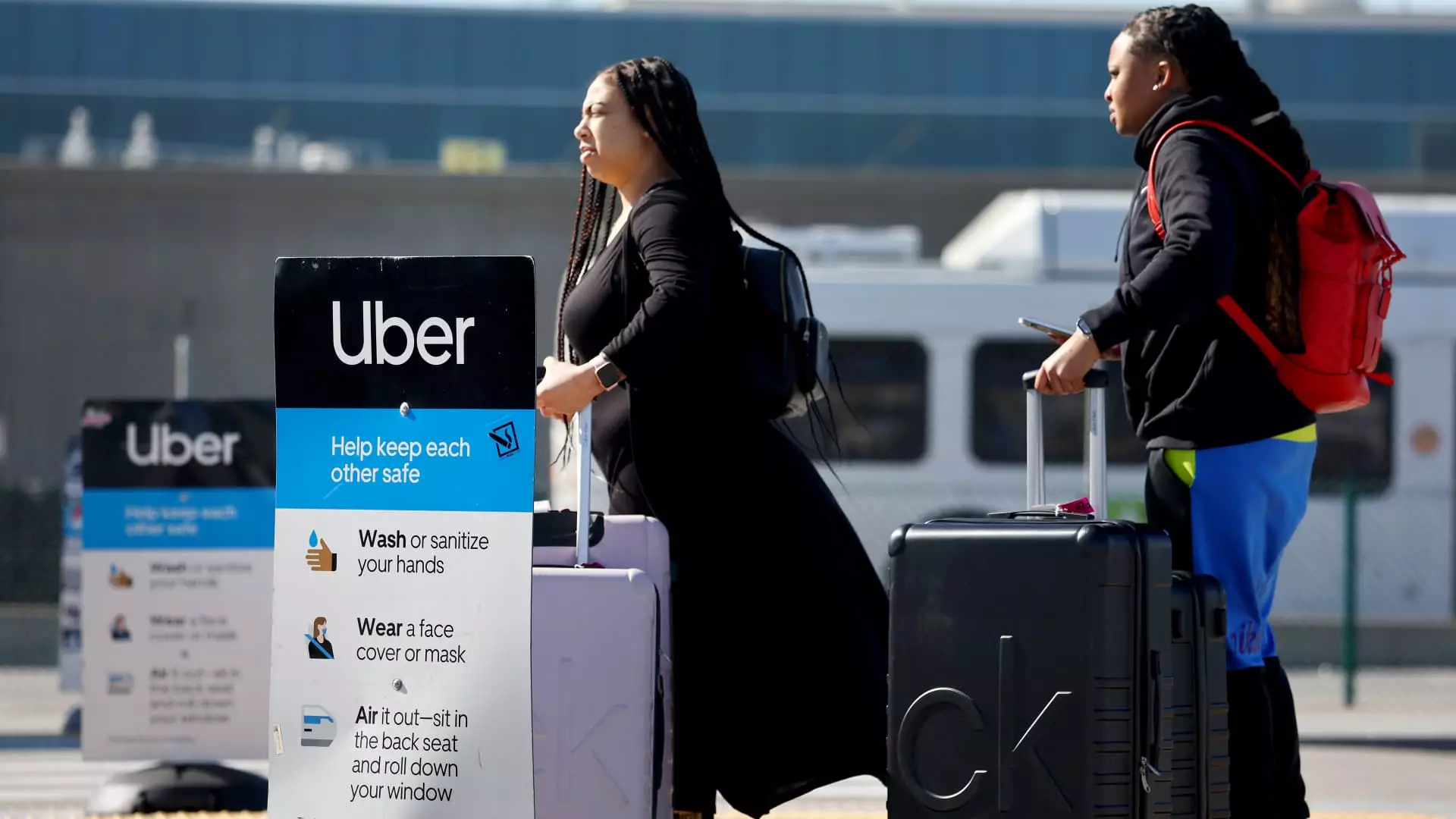In a significant strategic pivot, Delta Air Lines has opted to discontinue its eight-year collaboration with Lyft in favor of aligning its SkyMiles loyalty program with Uber. The announcement made on a Tuesday sets the stage for a new era of customer engagement and rewards for frequent travelers. By linking Delta SkyMiles accounts with Uber, the airline aims to enhance the customer experience during airport travel and solidify its competitive edge in the ever-evolving loyalty program landscape. With the increasing number of travelers returning to the skies, this partnership promises to streamline and enrich the travel process.
Under the new arrangement, SkyMiles members stand to gain from a tiered earning structure based on their Uber expenditures. For standard UberX airport rides, customers will earn one SkyMile per dollar spent. However, the value of rewards significantly increases for premium rides: users will earn two miles per dollar on rides such as Uber Comfort and Uber Black, and three miles per dollar on Uber Reserve trips. This incentivized framework not only enriches the travel experience but also encourages users to opt for higher quality service when booking rides. Additionally, for customers utilizing Uber Eats, there’s an attractive proposition: one SkyMile for every dollar spent on food orders surpassing $40. This integration of both transportation and food delivery creates a comprehensive customer loyalty ecosystem that benefits Delta and Uber alike.
Delta’s decision to enhance its loyalty program is evidence of a growing trend among airlines to broaden their partnerships. Frequent flyer programs, previously limited in scope, are now being expanded significantly to generate billions of dollars for airlines. Alongside Uber, Delta is collaborating with brands like Starbucks, Hertz, and Ticketmaster, showcasing a commitment to offer its customers myriad avenues to earn rewards. This multi-faceted approach ensures that customers feel valued across different segments of their spending, ultimately driving brand loyalty.
As Delta makes this substantial shift, customers who have linked their Lyft accounts to the SkyMiles program are being given a grace period until April 7 to earn miles. Delta has assured these users that they will receive communication detailing this transition in the near future. While the end of this partnership may leave some users discontented, Lyft itself has expressed optimism in its statement, emphasizing its ongoing collaborations with other major brands. These partnerships, including new ties with Alaska Airlines and financial institutions like Chase, highlight Lyft’s intent to innovate and adapt in a competitive marketplace.
While Delta has not provided specific reasons for dissolving its partnership with Lyft, the decision may relate back to financial motivations. Delta’s partnership with American Express has been lucrative, with projected earnings of around $7 billion in 2024 and ambitious long-term targets. As the airline continues to assess and maximize its revenue streams, aligning with a dominant player like Uber—currently boasting approximately 161 million monthly active users—could provide a substantial competitive advantage.
As the Delta and Uber partnership takes shape, both companies are poised for a unique synergy that could redefine airport travel. Noteworthy is the timing of this announcement at the CES tech show in Las Vegas, where Delta unveiled plans for an artificial intelligence-powered assistant to optimize user experience within their app. This forward-thinking initiative, combined with the enhanced loyalty program, reflects Delta’s commitment to innovation and customer-centricity amidst a landscape where convenience and seamless travel experiences have become paramount.
Delta Air Lines’ shift to partnering with Uber marks a noteworthy evolution in air travel loyalty programs, simplifying the customer experience and providing added incentives. The broader implications of such strategic partnerships in the airline industry underscore the competitive nature of customer loyalty, where airlines must continually adapt to meet the demands of an ever-changing market.

